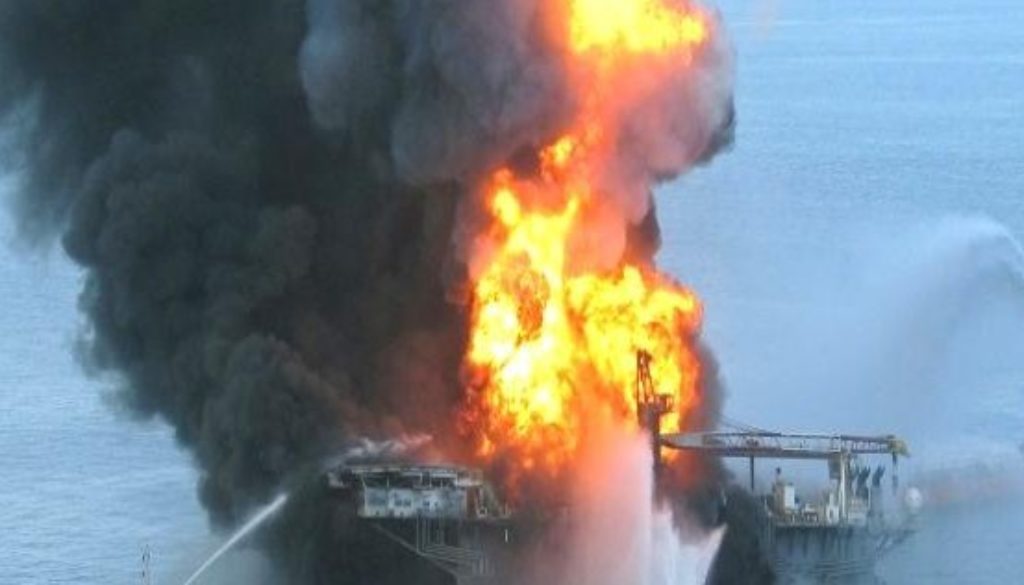Three Years after Deepwater Horizon Disaster, Has the U.S. Improved Safety Standards for Oil Drilling?
The debates over our country’s regulatory system that have been happening in Washington often take place in the form broad generalities. This is how we come to hear complaints about the number of pages of new regulations with no look at the quality of or the need for that content. It’s how we hear of calls for more and more analyses to calculate not only direct costs, but potential indirect costs of new rules in the future without a meaningful consideration of the benefits those rules give to society. It is far easier, after all, to drum up anger and opposition to “red tape” when the debate takes place in the abstract.
And then, in tragedies like the Deepwater Horizon oil spill, which happened three years ago on April 20, 2010, and the recent explosion in West, Texas, we see the consequences when proper regulations and safeguards are not in place and existing standards are unenforced.
The Deepwater Horizon disaster, which killed 11 workers and poured 170 million gallons of oil into the Gulf of Mexico in the worst oil spill in U.S. history, reminds us of the vital importance of maintaining a system of regulations and safeguards that forces corporations to behave responsibly. As the consequences of this crisis are likely to be felt for years to come, it is crucial that we learn the right lessons and take the necessary steps to ensure the same mistakes aren’t made twice.
The impacts on those living in the Gulf region, including the wildlife, have been profound. Not only have the fishing, boating, and tourism industries taken a huge hit in the three years following the British Petroleum (BP) spill, but the region’s ecosystem has been severely damaged. The spill killed thousands of birds, hundreds of endangered sea turtles, and scores of dolphins. Thousands of miles of coastline are still contaminated with oil.
A rational response to what President Obama called the “worst environmental disaster America has ever faced” entails taking steps to avoid similar tragedies in the future. To do this requires answering some simple questions: How did this happen, what could have been done to prevent it, and have we made progress in making oil and gas drilling safer?
The immediate causes of the Deepwater Horizon spill are well known. A piece of equipment that was meant to prevent blowouts on the oil rig failed. This resulted in a gas explosion, which is thought to have killed the workers and known to have caused oil to gush out of the well.
But this isn’t the whole story. Much like the Great Recession of 2008, the BP oil spill has its origins in a wave of deregulation that began in the 1990s, allowing those in the oil and gas industry much greater leeway in regulating themselves and determining their own safety standards.
Much like the innovations in the financial sector that were claimed to be good for everybody, yet too complex for federal regulators to understand, advancements in technology during the boom in deepwater oil exploration allowed the oil industry to basically write its own rules. Rep. George Miller (D-Calif.) told The Wall Street Journal, “The industry convinced nearly everyone in government that what they were doing was so sophisticated that it was both totally safe and impossible for government to understand, much less regulate. Government was romanced. And it succumbed to the romance.” As a result, the risks of deepwater drilling were not properly assessed and safety protocols were not adequately developed. More than 10 years before the spill, standards on testing the equipment that failed on the Deepwater Horizon rig were relaxed at the behest of the oil and gas industry, saving companies around $25 million a year.
The broad arguments against regulations are always the same. When the discussion leaves the ideological realm and addresses concrete examples, however, like seatbelts in cars, limiting the amount of lead in children’s toys, or safety standards to prevent oil spills, the public response is very different. People tend to like rules that make life safer for their families and loved ones. The disastrous consequences of inadequate regulation, the failure to establish public protections, and a lack of enforcement of standards already on the books—factors that produce tragedies like the BP oil spill—underscore the shallowness of attacks against sensible safeguards.
Since the disaster, some steps have been taken to address the failure of regulators to do their part in preventing this disaster. Recently, the Interior Department issued rules that help protect workers on offshore drilling sites, giving workers the power to halt risky or dangerous work without fear of retaliation from their employers. While these efforts at improving the safety of offshore drilling are important, much more needs to be done before deepwater drilling is safe for workers and the environment. Congress should act to raise the liability cap and financial responsibility requirements for offshore facilities. Lawmakers could also restructure federal oversight programs to be funded not by taxpayers but fees paid by the oil industry.
The story of the Deepwater Horizon spill underscores the need for a strong regulatory system that protects the American public from reckless behavior and preventable disasters. It should cause us to be suspicious when an industry resists rules that will improve safety on the grounds that they are too costly.
Industry will continue to oppose restrictions on its behavior. It is up to us to make sure they behave responsibly.

